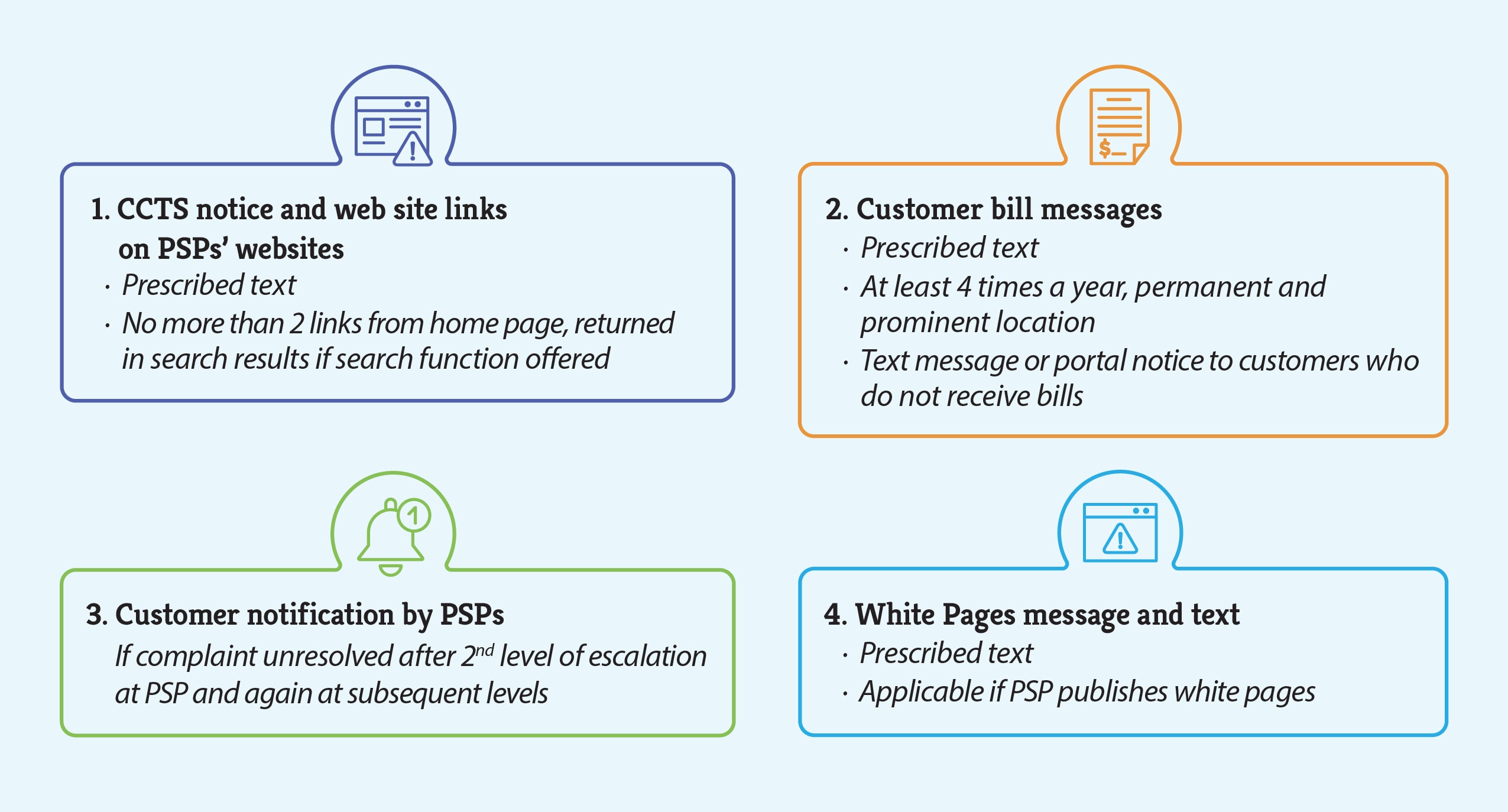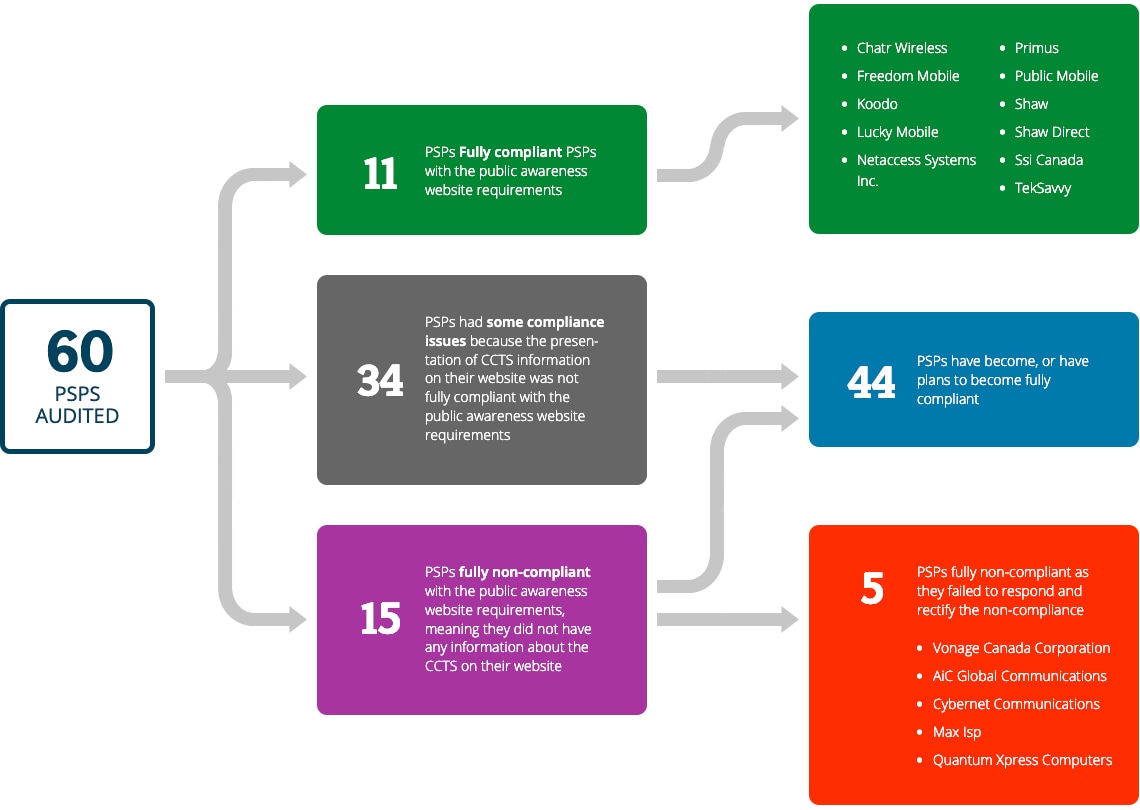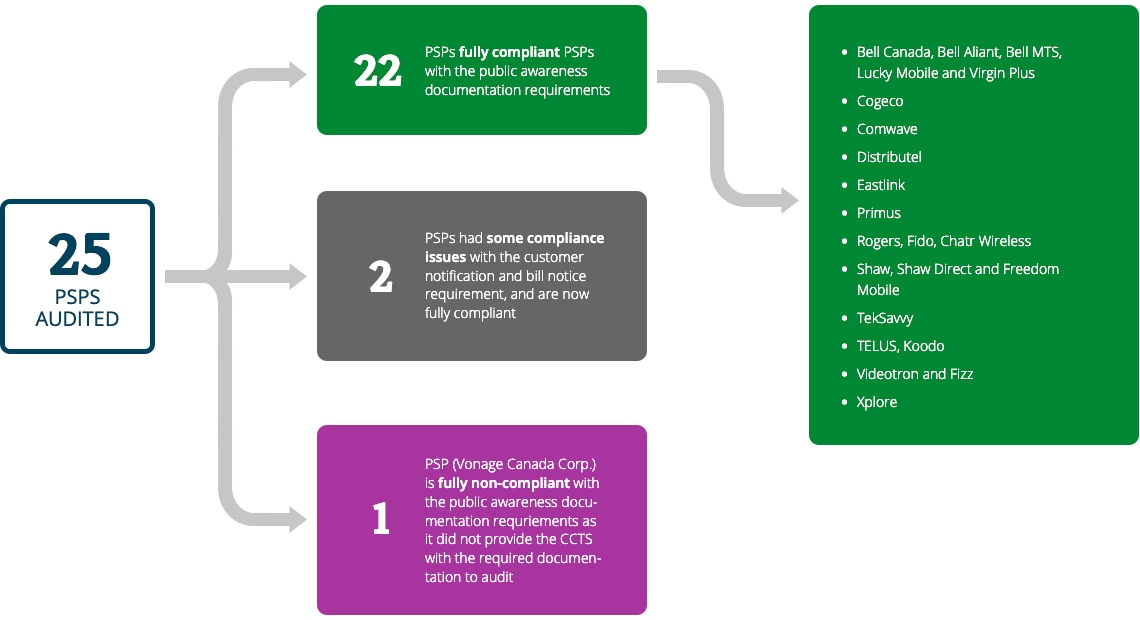Complaint handling requirements
In May 2023, the CCTS transitioned to a new complaint-handling process to enhance our service delivery to customers and providers. These process changes streamline and simplify the complaints process, allow us to resolve complaints more quickly and increase transparency about how we make determinations about complaints.
PSPs’ obligations under our updated process remain largely the same: PSPs must respond to CCTS after receiving a complaint, submit all relevant documents when a complaint remains unresolved and implement all resolutions and CCTS findings. These obligations continue to ensure that the CCTS’ complaint-handling process can proceed effectively in a timely manner and that consumers receive the recourse they are entitled to.
This report discusses compliance from January 1 to December 31, 2022 with the Procedural Code requirements in effect at the time, before it was amended in May 2023.
In 2022, we observed improvements in PSPs’ compliance with the CCTS’ rules:
- We saw a decrease in objection breaches compared to previous years.
- We saw fewer allegations of, and did not confirm any, breaches from PSPs asking customers to withdraw their complaint from the CCTS’ processes.
We also observed opportunities for PSPs to improve their compliance with the CCTS’ rules:
- There is a significant increase of compliance breaches in which PSPs incorrectly report that a complaint was mutually resolved with the customer. Common examples include the PSP does not contact the customer to discuss the resolution, or simply disagrees with the customer’s position that the complaint is unresolved.
- We see a continued increase of PSP failure to respond to the complaint within the required timeline or provide us with relevant documents. We will monitor this closely in our updated complaint-handling process.
- We saw more instances in which PSPs did not implement resolutions and remedies in CCTS findings in a timely manner. Many breaches for non-implementation of resolutions happen when a PSP takes too long to apply a credit on the customer’s account. Significant CCTS compliance efforts are needed when a PSP refuses to provide a customer with required remedies.
Notably, we terminated ICA Microsystems Inc.’s (“ICA”) participation in the CCTS because it failed to refund a customer and waive charges, as required in a Decision we issued in December 2022. As part of that Decision, we investigated fees that ICA charged to the customer for filing a complaint with a third-party complaint-handling body, and we found that these charges were invalid, as they penalized the customer for seeking recourse to the CCTS. We consider ICA’s failure to implement the Decision to be major non-compliance, and the CCTS engaged in significant efforts to resolve these issues before terminating the participation of the PSP. As of the writing of this report, in 2023, ICA is working with the CCTS to rectify its non-compliance and to rejoin the CCTS as a participating service provider.
Moving forward, the CCTS will continue to closely monitor PSP compliance with our updated complaint-handling process and other participation requirements.
PSP Public Awareness Plan requirements
In 2022, we focused on providing PSPs with more proactive guidance and direction on our expectations. We also increased our engagement efforts with those PSPs which are not compliant. As a result, we observed significant improvements in PSPs’ compliance with their obligations in promoting public awareness about the CCTS:
- As a result of our increased efforts to engage with non-compliant PSPs, 92% of audited PSPs are now compliant with their public awareness requirements.
- Last year, we noted our concern that PSPs included additional language to their websites and invoices which could leave customers with the inaccurate impression that they either must exhaust a number of steps before they could file a CCTS complaint, or that they were unable to file a CCTS complaint at all. We were pleased to see that this issue largely did not recur.
- After working with many of the same PSPs over the last five years, we were pleased to see that nearly 90% of the 25 PSPs audited were fully compliant with all Public Awareness Plan documentation requirements and these PSPs did not need to make any changes.
There continues to be an opportunity for PSPs to improve their compliance with the PSP website public awareness requirements. Information for customers about the PSP’s internal complaint handling process and the customer’s right to recourse to the CCTS should be presented more clearly or easier for consumers to find. In particular, this year we found:
- the majority of PSP internal complaints pages were not clearly labelled or easy to find, and many failed to contain information about the CCTS;
- the majority of PSP websites with a search function did not return the PSPs complaint page;
- several PSP business websites do not contain information about the CCTS, all of which are required by Developing Public Awareness of the CCTS.
Although PSPs rectified these issues once we informed them, we are concerned about the recurrence of these issues each year, and plan to work with PSPs to avoid non-compliance in the future.



